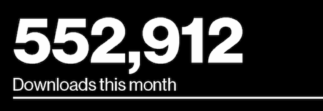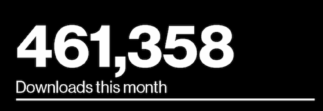Roger Levy is an associate professor in the Department of Brain and Cognitive Sciences and director of the MIT Computational Psycholinguistics Laboratory. Bibliotech asked him to share his perspective on leading the Committee on the Library System (CLS) and MIT’s commitment to open scholarship.

Roger Levy
Tell us about your role on CLS. Why did you want to be involved?
Libraries have been an important part of my life since I was just a few years old. I was a voracious reader, and my mother would check out books for me from the local public library by the dozen. Growing up in Tucson, Arizona, some of my most vivid memories were in local public libraries. In high school, I would spend hours wandering the stacks of the University of Arizona library and discovered research on topics that I’d never imagined, and during graduate school, the library was singularly important in allowing me to expand my knowledge beyond what I could learn from my faculty advisors and teachers. I am sure that experiences and memories like these are very common among members of the MIT community, and I think we are all deeply indebted to our libraries. My service on CLS is, I hope, a small step toward repaying my own personal debt.
I am especially grateful to be able to serve because CLS is one of the best platforms at MIT for advancing open access in scholarly publishing, which I am very passionate about. All of the over seven billion people on our planet stand to benefit from access to the knowledge we are constantly creating and refining in our research and teaching, but only a miniscule fraction have anything like the access that we enjoy at MIT and other elite institutions. With the Internet and digital publication, the main barrier to sharing that knowledge with the rest of the world is no longer technological: rather, it is the restrictions on open sharing that we researchers are all too accustomed to accepting when we publish our work. Because CLS is the steward of MIT’s Faculty Open Access Policy, we have a crucial role to play in helping shift MIT to a norm of open sharing that benefits all of society.
What excites you most about MIT’s vision for the future of libraries?
MIT has developed a compelling vision that the community served by our libraries is not just the people who happen to have an MIT affiliation, but in a very meaningful sense extends beyond to Cambridge, the United States, and even the entire world. Although the physical footprint of the MIT Libraries remains extraordinarily important, it is now equally importantly a “computational library” that can bring knowledge and learning to people around the globe. As academic scholarship continues to move to a norm of open sharing, more and more of the digital collections curated by the Libraries will be available to anyone who wants to access them. This is an incredibly exciting opportunity to fulfill MIT’s mission to “to bring knowledge to bear on the world’s great challenges,” and the potential impact is tremendous.
CLS was closely involved in developing the MIT Framework for Publisher Contracts. What impact do you hope it will have, both for the MIT community and scholarly communications more broadly?
The framework is grounded in the simple truth that the value inherent in published scholarship is fundamentally the product of the work by researcher-authors, our fellow peer reviewers, editors, and the institutions that support us. The principles of the framework manifest a public commitment to supporting the rights of MIT community members to freely share the scholarship that we have created. Libraries are crucial players around the globe in bringing about the shift to a norm of open access publication because of their long-standing contractual relationships with scholarly publishers and because the actions of a library are larger in scale than the actions of any handful of faculty members. I know that MIT and the nearly 200 institutions endorsing the framework have the backs of faculty members around the country in supporting our rights to open dissemination of our scholarship.
How have the MIT faculty responded to the framework?
Starting in November 2019, CLS and the Libraries have been holding information sessions throughout the Institute on open access, the framework, and ongoing negotiations with scholarly publishers. The ecosystems of scholarly publishing environments are different for different fields; the coin of the realm for a field’s main publishers can range from journal articles to monographs to conference proceedings papers. One of CLS’s principal responsibilities is to serve as liaison between the MIT community and the Libraries, so it is important for us to understand the incentives and challenges operative in each scholarly field. Faculty have brought enlightening, diverse voices and opinions to these discussions, but what really strikes me is the tremendously widespread support for the core grounding of the framework: that we and the institutions that support us are responsible for the value in published scholarship, and that the benefit to society is greatest when our scholarship is immediately and freely available to the entire world.

